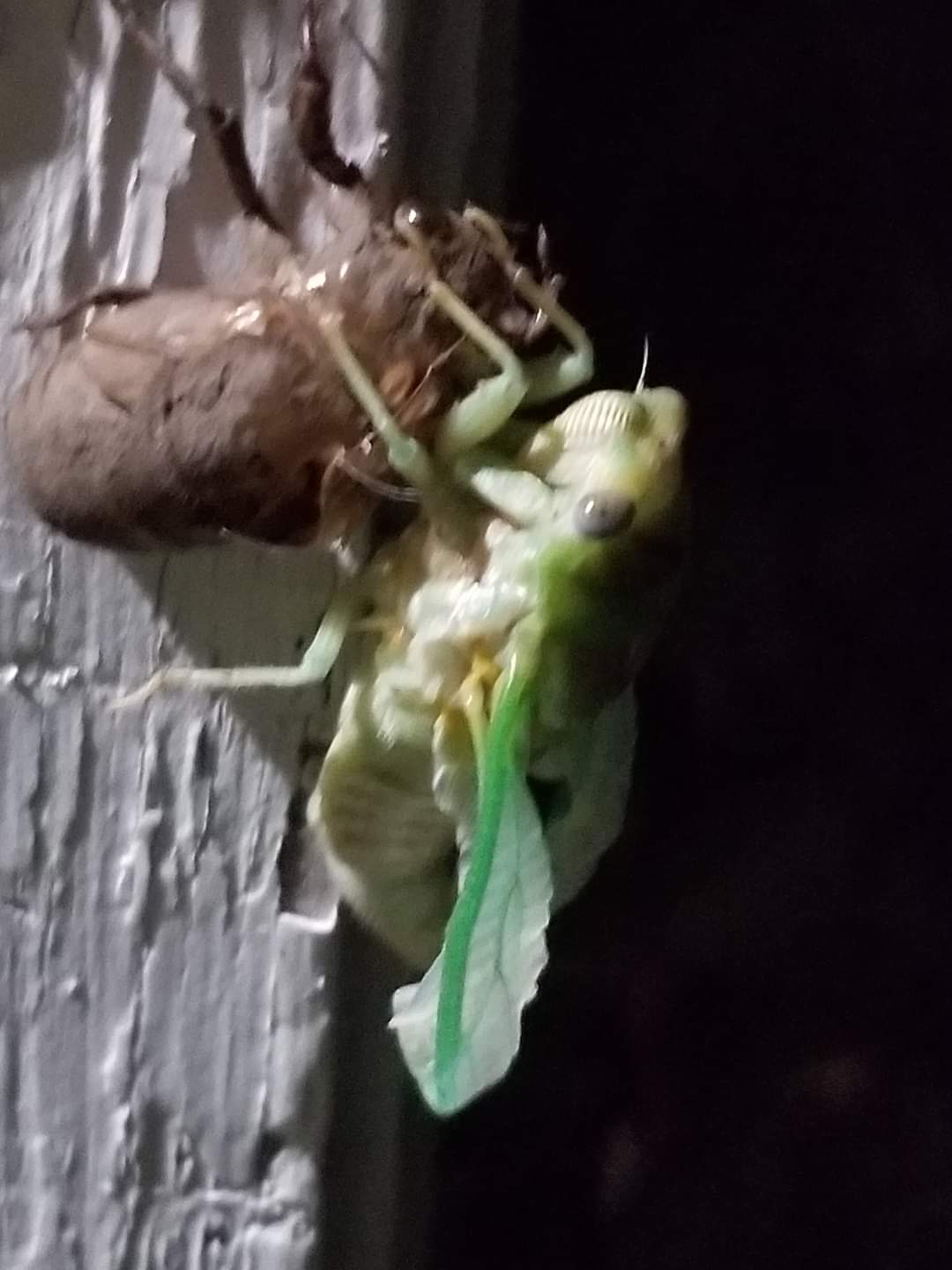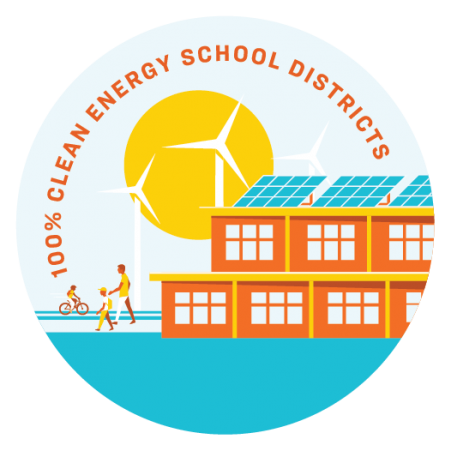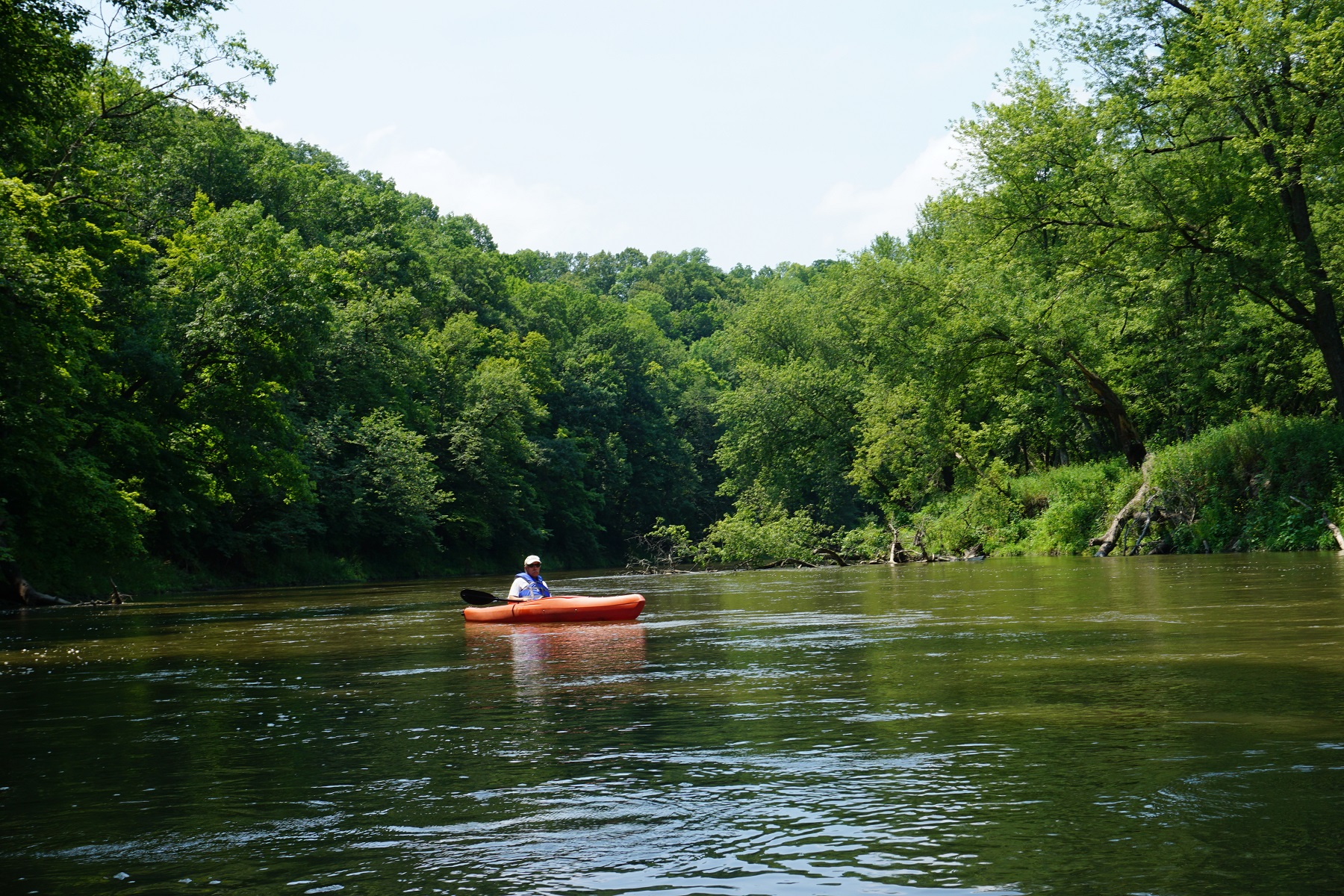Elections for mayor, city council members, and school board members will be held on November 2. Get to know the candidates. Talk to the candidates about environmental issues, such as installing solar panels on public buildings, implementing energy efficiency projects, and purchasing electric vehicles.
The recently released report from the Intergovernmental Panel on Climate Change indicated that the climate crisis is in a code red stage, although there is still time to act to avoid the worst possible scenarios. There are numerous things that city councils and school boards can do to reduce climate impacts. It is important to engage in these issues locally.
This is also the first election where the new voting rules are being implemented and there are significant changes. If you have not registered to vote, now is the time to do so. Contact your county auditor's office so you know where your polling place is located. Also be aware that absentee ballots must be RECEIVED by the auditor by 8pm on election day -- this is a huge change. The polls will close at 8pm on November 2.
Enjoy the summer!
Pam Mackey Taylor, Chapter Director and Newsletter Editor
Photo at right is an annual cicada, courtesy of Nick Graceffa.
What you can do to help the environment
-
Visit with candidates for mayor, city council, and school board about environmental issues, such as installing solar panels on public buildings, implementing energy efficiency projects, and purchasing electric vehicles. Elections will be held on November 2.
-
Save the date - Sierra Club Annual Meeting, September 26, 2:00 to 3:30, webinar and keynote speaker Alan Guebert.
-
Take some time to enjoy Iowa's outdoors. Hike, picnic, paddle, and visit the state's rivers and streams, parks, and recreation areas.
In this issue of the Iowa Sierran
News about local elections
-
Upcoming Elections for School Board, City Council, & Mayor

-
Advancing Environmental Issues One Step at a Time
-
School Boards Have a Role in Protecting Children From Factory Farm Emissions
-
Tips for getting involved in local government issues
Events
-
Our Annual Meeting, Sept. 26, 2:00 - 3:30, via webinar with keynote speaker Alan Guebert
-
Join us for interesting and informative webinars and Lunch and Learns
Plus
-
Contribute to the Iowa Chapter
-
Volunteer for the Iowa Chapter
-
Calendar of events
-
To see the archive of previous Iowa Chapter newsletters
-
To see the White Pine Needle newsletter
Upcoming Elections for School Board, City Council, & Mayor
There are a number of ways that mayor and city council members are selected. Based on how the seats are selected, the candidate filing dates and election cycle will vary.
- Some are selected at-large; others run in wards
- Some cities have primaries; others do not

- Some will have a run-off after the election if there is not a clear winner
The calendar for the election follows
- August 9 to 26: city council and mayor candidates can file to be on the ballot for cities with primaries
- August 23 to September 16: city council and mayor candidates can file to be on the ballot for cities not holding a primary; plus the filing deadline for school board candidates
- October 5: city primaries
- November 2: city election, school board election
- November 30: city run-off, if needed
If you have questions about the races or the issues that the city council or school board members have been confronting, here is who you can contact:
- County auditor - names of candidates and polling places
- City manager, mayor, council members - information about the council and mayor races, if candidates run in wards or at-large, if there are primaries
- School superintendent - information on the school board
Advancing Environmental Issues One Step at a Time
Have you ever wondered why the political candidates and office-holders don’t talk about environmental issues? It could be that no one is talking to the candidates about those issues. If they do not hear from their constituents and potential voters, they do not know that the voters are concerned about protecting the environment.
As a voter, you can educate the candidates following these simple steps. Perhaps most importantly, talk to your friends, neighbors, and relatives about the candidates and the issues. Our opposition isn't afraid to talk about issues and we shouldn't be afraid.
Acquainting Candidates with Environmental Issues
As a voter, you are in a position to educate a candidate. Here is a simple formula:
- Make the candidate aware of the issue and solutions. Write an email or letter to the candidate describing the issue and what you would like them to support. Include your name, address and phone number in case the candidate wants to follow-up.
- When a candidate is shaking hands, have a one-minute summary of your issue and tell the candidate that you would like to see him or her support the issue.
- Ask the candidate how he or she feels about the issue when they appear at public meetings and campaign events.
- Volunteer for candidates who support your issue, to help them get elected to office. Once they are serving as elected officials, they can begin implementing environmental policies
- Write and submit letters to the editor to your local paper about your issue. Each newspaper has its own requirements for letters to editor so check with the paper.
- Build some enthusiasm and awareness about environmental issues by talking about the issues to your neighbors, friends and relatives. Don’t be bashful about talking about political issues! Our opponents don’t hesitate.
- Ask your neighbors who are like-minded about the issue to talk to the candidates and write letters to the editor. Having other supporters helps ensure that your interests are known by the candidate and are supported by more than one person.
- If you have a personal social media account, such as Facebook or Twitter, be sure to post comments on the issues and candidates.
- Express your views on talk radio. Although it can be intimidating at first, talk radio is one of the key means for the public to learn about issues.
- Finally, and most importantly, make your choice at the ballot box. Every vote is important.
Get to Know Your School Board Candidates
School board members can have a huge impact on the environment. Get to know the candidates. Ask them some environmental questions, such as:
- Do you have any environmental priorities for the school district?
- What efforts would you support to reduce energy consumption by the school district?
- Do you support developing a climate action plan for the school district?
- Would you support our school board setting a goal of 100% clean energy, including installing solar systems?
- Do you support the purchase of electric vehicles for the school district, including school buses?
- Do you have any plans or ideas for increasing recycling, composting or waste reduction in the school district?
- What steps would you take steps to reduce children’s exposure to pesticides?
- Would you support regular testing of school buildings for radon?
- Would you work to reduce children’s exposure to air emission by establishing idle-free zones near playgrounds and loading zones?
- Would you work on establishing farm-to-table programs to provide locally grown foods in the cafeterias?
- If your school district has a school house near a confined animal feeding operation (CAFO), what actions would you take to ensure that the children are protected from the air emissions?
Get to Know The Candidates For City Council & Mayor
Mayors and city council members can have a huge impact on the environment. Get to know the candidates. Ask them some environmental questions, such as:![]()
- Do you have any environmental priorities for the city?
- What efforts would you support to reduce energy consumption by the city?
- Do you support developing a climate action plan for the city?
- Would you support our city setting a goal of 100% clean energy?
- Would you support investment in electric vehicle charging stations?
- Do you support the purchase of electric vehicles for the city?
- Do you support increased funding for public transit?
- Would you support municipal ordinances to reduce the night-time lighting while still keeping the community safe?
- Are there any particular clean water projects in our community you would like to pursue?
- Would you support a local ordinance requiring the return of 4-inches or more of topsoil to building sites after construction?
- Would you support proposals to improve and expand multi-use trails in our city?
- Would you support investment in improving and increasing wildlife habitat and ecosystem restoration at our local parks and public lands?
- Would you support adding land to the city park system?
- Would you support efforts to reduce building on environmentally sensitive areas, such as wooded areas, prairie, wetlands, and floodplains in the community?
- Would you pursue policies to promote infill rather than expanding into agricultural land?
- Do you have any plans or ideas for increasing recycling, composting or waste reduction in the city?
- Would you support removing city funds from banks that have been sanctioned for fraud?
- Would you strive to engage minority and low-income leaders in the decision-making process to ensure environmental policies do not adversely affect these vulnerable members of our community?
- If elected, will you work to identify and address those specific environmental threats and needs that are unique to our low-income and minority communities?
School Boards Have a Role in Protecting Children From Factory Farm Emissions
Soon confined animal feeding operations (CAFOs) will be emptying their manure holding pits. The stench and pollution can be detected for several miles from the CAFO and fields where the manure is spread. The odor emanating from farm fields persists for weeks.
Although you may think that Iowa regulations would protect children from exposure to CAFOs, that is not the case. The Iowa Code establishes separation distances, but those distances are inadequate in keeping odors and pollution away from communities and schools. The smallest confinement operations have no separation distances. For the largest operations, the separation is slightly over half a mile.
The issue of CAFO manure is more than its horrendous stench. Odors from the manure are carried on dust and other air particles. The manure is loaded with toxic pollutants such as methane, hydrogen sulfide, ammonia, particulate matter, fungi, bacteria, and endotoxins that become airborne.
The physical reaction to the toxic chemicals results in nausea, running noses, sore eyes, respiratory distress, asthma attacks, and changes in mood. Because of the heavy use of antimicrobials within a CAFO, bacteria have become antibiotic-resistant. That can result in harmful life-threatening illnesses, including methicillin-resistant Staphylococcus aureus (MRSA) and drug-resistant E. coli.
Children face a special risk to air pollution because they are more active than adults when they are outdoors. This means that they breathe more air. Further, children’s lungs are developing. When that air is polluted, children can face health effects, reduced ability of the lungs to fight off infections, and difficulty dealing with pollutants. Researchers have found indicators of asthma based on residential and school exposure to pollution from hog operations.
One of the responsibilities of the school board is to ensure that students are given a safe and secure environment. Part of being safe is being protected from unhealthy pollution. Parents have an expectation that when they send their children to school, their health is protected.
School boards can and should take action to protect children from the odors and toxic chemicals emanating from CAFOS and their manure application fields. If a CAFO or its manure application fields are close to a school, the school board can require the following measures:
- Requiring children to stay inside on bad odor days instead of having recess or gym class outdoors.
- Requiring the windows to be closed on bad odor days.
- Installing and running air purifiers and air filters.
- Developing policies that cancel or move outdoor sports team practices or games, marching band practices, and other activities due to poor outdoor air quality and odor.
- Closing schools that have difficulty with high odor levels.
- Requiring the principal to keep a log on air quality – from an odor perspective. The log, which would be updated right before recess and lunch hour times, should be available for review by parents and members of the public.
Until we have a moratorium on building new CAFOs and meaningful regulations on existing CAFOs, it is left to others to protect our children.
To learn more about how School Boards Can Protect Children From CAFO Odors and Pollution
To learn more about why a factory farm moratorium makes sense
Solar for Iowa Schools
Last month, we ran an article in the Iowa Sierran about installing solar energy systems on schools. Iowa schools can play a leading role in our clean energy transition, community by community. By installing solar on our public schools, districts save money and kids learn by example with cutting edge technology. School boards are key decision-makers in the decisions to move school buildings to running with solar energy.
Learn more by viewing our webinar "Solar for Iowa Schools: Investing in our Future". Panelists Terry Dvorak and Matt Randklev discuss the opportunities solar provides for schools and discuss how school districts can finance the projects. Terry Dvorak is the founder and CEO of Red Lion Renewables. Matt Randklev is the Solar Development Coordinator at One Source Solar, an Iowa based solar design and installation business in Ankeny, Iowa.
Resources:
-
Sierra Club Climate Parents campaign resources for schools: www.sierraclub.org/climate-parents/resources-for-schools
-
The State Auditor’s office created a report on the estimated savings from solar for schools: "A Review Of The Financial Impacts Of Public Entity Solar Energy Installations", February 25, 2021, See www.auditor.iowa.gov/media/cms/IowaSolarReport_55192DA30BB49.pdf
Tips for getting involved in local government issues
One of the best ways to get involved in environmental issues is to start locally. There are a few pointers for getting involved in local issues:
- Just begin. Find something that interests you and pay attention to it. Figure out who the players are. Find out what decisions are coming up. Meet others who are interested in the issue.
- Go to the meetings. Show up. Begin speaking out.
- Do your homework. Learn the subject in depth.
- Persist. Remain vigilant. Keep trekking even after a defeat.
- Be scrupulous in your argument. Distinguish fact from opinion. Be accurate in your facts.
- Don’t burn bridges, build them.
- Volunteer to serve on boards, task forces, and committees. Among them are the board of adjustment and the planning and zoning commission, both of which deal with zoning issues.
To give you an idea of some things local governments can do related to climate change and energy efficiency, see our webpage "Local Governments Can Reduce Greenhouse Gas Emissions"
To learn more about local environmental issues, see “Cities and Counties - Getting Involved Locally”
One of the key funding mechanism cities use to fund economic development is through tax-increment financing. Dave Swenson, Research Scientist, Department of Economics, Iowa State University, discusses "Tax-increment financing and how it impacts local communities" in this video.
Sources
Material is taken from Legacy: Portraits of 50 Area Environmental Elders, John Hart, Sierra Club Books, San Francisco, CA, 2006
Our Annual Meeting, Sept. 26, 2:00 - 3:30, via webinar with
Keynote Speaker Alan Guebert
You are invited to join us for our annual meeting which will be on September 26 from 2:00 to 3:30. Alan Guebert is an award-winning agricultural journalist. He writes a weekly syndicated agriculture  column “The Farm and Food File” that appears in more than 60 newspapers in the United States and Canada. After graduating from the University of Illinois, he worked as a writer and senior editor at Professional Farmers of America and Successful Farming magazine. He served as a contributing editor to Farm Journal magazine. From 1995 through 2007, Guebert wrote “Letter from America,” a monthly perspective on U.S. farm and food policy for European and Asian publications. Register for the webinar and we will send you access information.
column “The Farm and Food File” that appears in more than 60 newspapers in the United States and Canada. After graduating from the University of Illinois, he worked as a writer and senior editor at Professional Farmers of America and Successful Farming magazine. He served as a contributing editor to Farm Journal magazine. From 1995 through 2007, Guebert wrote “Letter from America,” a monthly perspective on U.S. farm and food policy for European and Asian publications. Register for the webinar and we will send you access information.
Join us for interesting and informative webinars
Lunch and Learns
Every Friday at noon, we do a Lunch and Learn livestream. See us on Facebook at "Sierra Club Iowa Chapter". These will be recorded so you can watch them anytime. Topics will be selected based on what is happening during the week and will be announced the day before the livestream. During the legislative session, we cover issues coming before the Iowa legislature.
In case you missed our past webinars and lunch and learn sessions, you can still see them.
We hope you can join us.
Volunteer for the Iowa Chapter
Almost everything we do is done by volunteers like you. If you would like to volunteer for the Iowa Chapter, please let us know by sending an E-mail to Iowa.chapter@sierraclub.org. Or sign up by using the online form. There are many opportunities for you to make a difference:
-
making phone calls
-
developing graphics for banners and flyers

-
working on legislative issues
-
working on elections
-
fundraising
-
organizing events
-
joining an issue committee
If you would like to join a committee on the Peoples Budget, sign up here please fill out our People's Budget Volunteer Form so we can build our organizing team for this project. A large number of Sierra Club issues require some involvement with Iowa's state budget. Budgets reflect theories of government. Iowa’s political conversation rarely moves beyond the notion that government’s primary responsibility is to grow the economy. Hence we give corporations tax breaks, but slash funding for health care, environmental protections and public interest research at our three state universities. We hold a different view of government and that is government is the trustee of all the things we share - public roads and bridges, water, wildlife, air, public universities, state parks, education and public health. Therefore, protecting, enhancing and restoring our shared public wealth is the central responsibility of government. We must tie the budget to our priorities.
If you would like to join our legislative action team, sign up here. Keep on top of what is happening at the Iowa legislature. Be alerted when you should contact your legislators about pending legislation.
If you would like to join the team on a public interest research agenda, send an e-mail to iowa.chapter@sierraclub.org. The Iowa Chapter of the Sierra Club is forming a team to design a public interest research agenda, determine needed policies, and develop a strategy to implement the public research agenda. This project will be a year-long study and design group. We are especially looking for scientists who are working in climate, public health, sustainable agriculture, and related fields.
Contribute to the Iowa Chapter
Sierra Club - the best bet for achieving bold solutions to Iowa’s environmental problems
Sierra Club is Iowa’s oldest and largest grassroots environmental organization. Not only that, we are the best bet in the state for achieving bold solutions to Iowa’s environmental problems.
We work in the courts, before Iowa’s public agencies, and in the halls of the legislature. The Iowa Chapter's effort to protect the environment takes financial support. The Chapter receives very little financial support from the national Sierra Club. Can we count on you for a donation to ensure even more victories? Your contribution will be put to work here in Iowa on issues that affect every day Iowans – water quality, clean air, protection of Iowa's soil, parks and natural areas, and a strong democracy. The Iowa Chapter is relentless in fighting back bad legislation that affects every one of us.
Your non-deductible contributions make it possible for us to fight bad legislation and to promote good legislation. We appreciate your past and on-going support of these efforts. You can make a non-deductible donation with a credit card. A non-deductible donation supports the Chapter's effective, citizen-based advocacy and lobbying programs. If you prefer, a non-deductible check can be written to the Sierra Club Iowa Chapter and mailed to:
Treasurer
Sierra Club, Iowa Chapter
PO Box 1058
Marion, IA 52302
You can also make a tax-deductible donation with a credit card. Tax-deductible activities are limited to public interest education, research and legal actions. A deductible check can be written to the Sierra Club Foundation with “Iowa Chapter” written in the memo line.
Easier yet, become a monthly donor.
Thank you for your support.
Donate your used vehicle
As the Sierra Club Foundation's Iowa Chapter continues to raise charitable funds to support its work in Iowa, won’t you consider participating in our vehicle donation program? Our partners over at CARS have made the process of donating your unused or unneeded car, truck, motorcycle, boat or RV easy, efficient and secure. They’ll take care of everything from picking up your vehicle to sending you a tax receipt for your generous gift. To learn more about The Sierra Club Foundation's Iowa Chapter vehicle donation program, please call 844-674-3772. Or visit our webpage to get started today!
Sierra Club Foundation promotes climate solutions, conservation, and movement building through a powerful combination of strategic philanthropy and grassroots advocacy. The Foundation is the fiscal sponsor of Sierra Club’s charitable environmental programs.
For more information
| When | Earliest: Latest: |
| What |
|
| Word or Phrase | Word or phrase to search for: |
| Leader | All or part of leader name to search for: |
No Matching Activities Found
Loading
| Date | Activity (click title for full description) | Sponsor | Category | Type | Difficulty | Links |
|---|
Loading ...
 Outing
Outing Club support event
Club support event  Social event
Social event  Activist event
Activist event  Multiple events (map only)
Multiple events (map only)